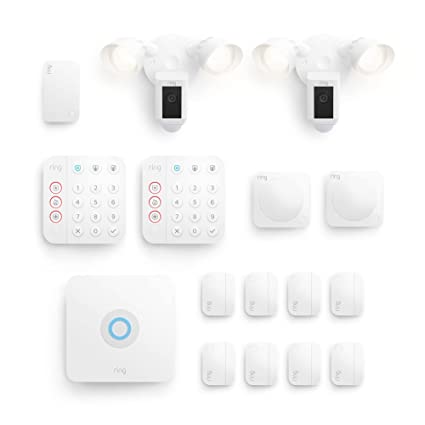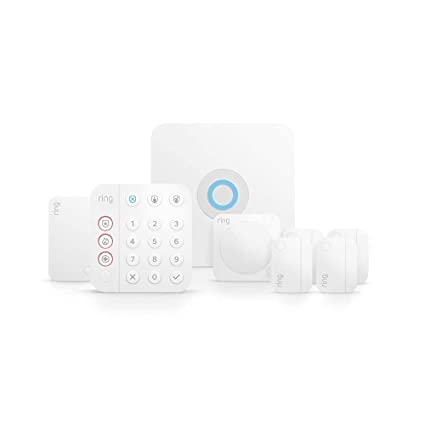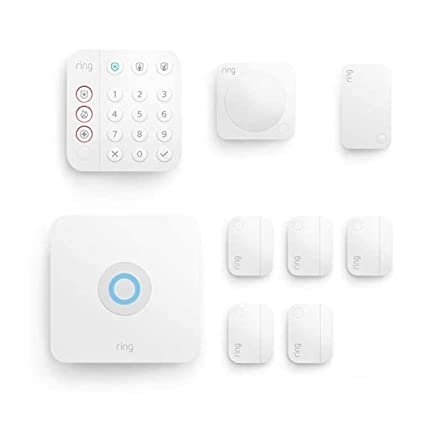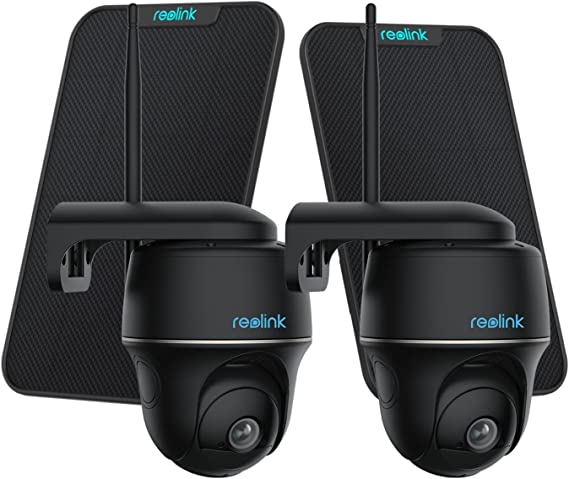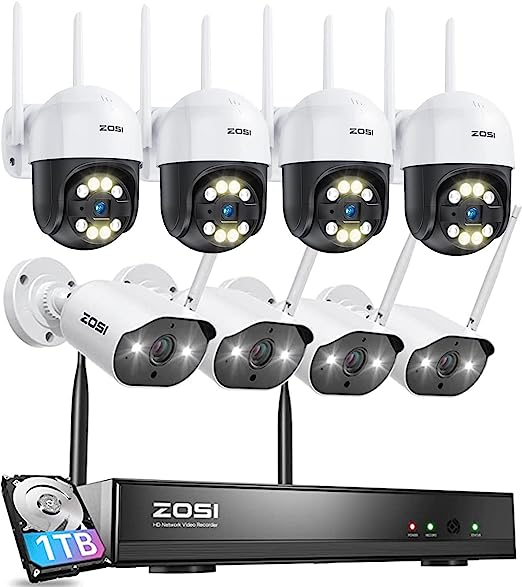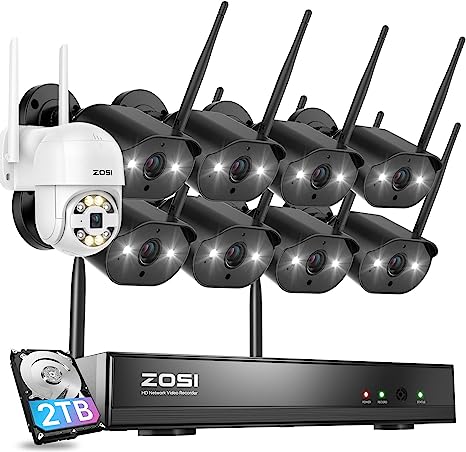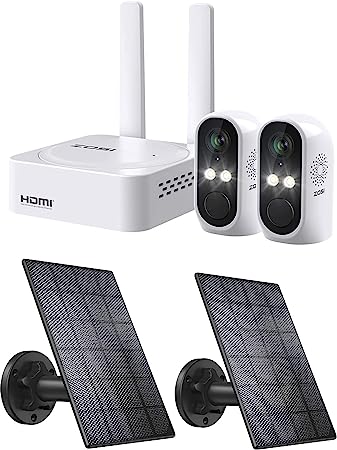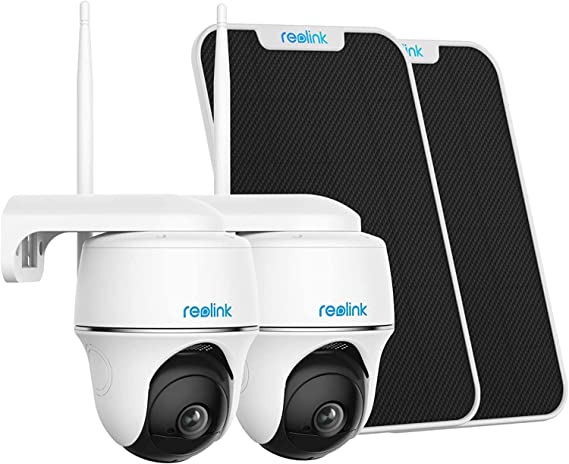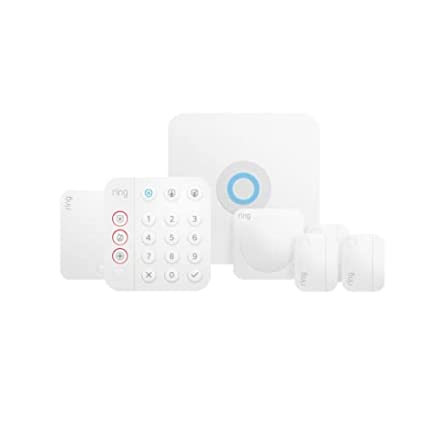Types of Outdoor Alarm Systems: Choosing the Right Solution for Enhanced Security
When it comes to safeguarding your property, outdoor alarm systems play a crucial role in detecting and deterring potential threats. In this article, we will explore the different types of outdoor alarm systems available in the market today. Drawing from personal experience and industry expertise, we’ll provide valuable insights to help you choose the right solution for your security needs.
Perimeter Detection Systems
Perimeter detection systems are designed to create a virtual boundary around your property, detecting any unauthorized access attempts. Here are some popular types:
- Infrared Beam Systems: These systems utilize infrared beams to create an invisible barrier. When the beam is interrupted, an alarm is triggered, signaling a potential intrusion.
- Buried Cable Systems: Buried cable systems consist of cables installed underground. When the cable is disturbed, it sends a signal to the control panel, activating the alarm.
- Laser Technology Systems: Laser-based systems emit beams that, when broken, activate an alarm. They provide high accuracy and are suitable for large outdoor areas.
Motion Sensor Systems
Motion sensor systems are widely used for outdoor security and can detect movement in specific areas. Here are the primary types:
- Passive Infrared (PIR) Sensors: PIR sensors detect changes in infrared energy caused by moving objects. They are commonly used in outdoor environments and are effective in detecting human and animal movements.
- Microwave Sensors: Microwave sensors emit microwave signals and measure the reflection pattern. Any changes in the pattern, such as movement, trigger the alarm. They are suitable for detecting both human and vehicle movement.
Sound and Visual Alarm Systems
Sound and visual alarm systems are essential components of outdoor security. They provide visible and audible warnings to deter potential intruders and alert nearby individuals. Here are some key features:
- Sirens: Outdoor sirens emit loud sounds, drawing attention and discouraging intruders. They are designed to withstand various weather conditions and typically have adjustable sound levels.
- Strobe Lights: Strobe lights produce powerful flashes of light, enhancing the visibility of the alarm. They are especially effective at night or in areas with low visibility.
Integration with Monitoring Services
Many outdoor alarm systems can be integrated with professional monitoring services. These services provide an added layer of protection by monitoring your property 24/In the event of an alarm activation, trained professionals can assess the situation and take appropriate action, such as contacting the authorities.
Personal Experience and Recommendations
As someone who has installed an outdoor alarm system, I can attest to the peace of mind it brings. Knowing that my property is being monitored and protected gives me a sense of security. I have found that a combination of perimeter detection systems and motion sensor systems provides comprehensive coverage for my outdoor areas.
Additionally, I highly recommend considering outdoor alarm systems that are compatible with monitoring services. The ability to have trained professionals monitoring my property round the clock adds an extra layer of security.
Features and Components of Outdoor Alarm Systems: Enhancing Your Security
When it comes to protecting your property, outdoor alarm systems play a crucial role in deterring potential threats and providing peace of mind. In this article, we will explore the essential features and components of outdoor alarm systems, drawing from personal experience and industry expertise. Understanding these key elements will help you make an informed decision when choosing an outdoor alarm system that suits your security needs.
Weatherproof Design
Outdoor alarm systems are exposed to various weather conditions, so it’s important to choose a system that is designed to withstand the elements. Look for weatherproof components and durable materials that can withstand rain, snow, extreme temperatures, and other outdoor challenges.
Motion Detection
Motion detection is a fundamental feature of outdoor alarm systems. These systems use sensors to detect movement in specific areas and trigger an alarm. Look for systems with advanced motion detection technology that can differentiate between humans, animals, and other objects to minimize false alarms.
Sound and Visual Alarms
Sound and visual alarms are essential components of outdoor security systems. They provide both a deterrent effect and notify you and others nearby of a potential intrusion. Look for systems with loud sirens and bright strobe lights to effectively ward off intruders and alert the surrounding area.
Remote Access and Control
Modern outdoor alarm systems often come with remote access and control features, allowing you to monitor and control your system from anywhere using your smartphone or computer. This enables you to arm or disarm the system, receive notifications, and even view live camera feeds if your system includes surveillance cameras.
Integration with Security Cameras
Security cameras are a valuable addition to outdoor alarm systems as they provide visual evidence and enable remote monitoring. Look for systems that integrate seamlessly with outdoor surveillance cameras, allowing you to capture and review footage in case of an incident.
Wireless Connectivity
Wireless connectivity has revolutionized the security industry, making installation and maintenance easier than ever. Look for outdoor alarm systems that offer wireless connectivity options, such as Wi-Fi or cellular, for hassle-free installation and reliable communication.
Mobile Alerts and Notifications
Receive instant alerts and notifications on your mobile device when an alarm is triggered or when there are system events. Look for systems that offer customizable alert settings, allowing you to prioritize specific events and stay informed about the security status of your property.
Backup Power Supply
A reliable outdoor alarm system should have a backup power supply to ensure continuous operation even during power outages. Look for systems that offer battery backup or have the option to connect to an uninterruptible power supply (UPS).
Professional Monitoring
Consider outdoor alarm systems that offer professional monitoring services. With professional monitoring, trained operators are alerted in the event of an alarm, and they can quickly assess the situation and contact the appropriate authorities if necessary.
Personal Experience and Recommendations
Having installed an outdoor alarm system myself, I can attest to the peace of mind it provides. The motion detection feature and the integration with security cameras have been particularly valuable in detecting and deterring potential intruders. Additionally, the ability to control and monitor the system remotely via a smartphone app has been incredibly convenient.
Considerations for Installing Outdoor Alarm Systems: Enhancing Your Security
Installing an outdoor alarm system is a smart decision to enhance the security of your property. In this article, we will discuss important considerations to keep in mind when installing outdoor alarm systems. Drawing from personal experience and industry expertise, we’ll provide valuable insights to help you make informed decisions and ensure the effectiveness of your security system.
Assess Your Security Needs
Before installing an outdoor alarm system, assess your security needs. Determine the areas of your property that require protection and identify potential vulnerabilities. Consider factors such as the layout of your property, the value of your assets, and any previous security incidents. This assessment will help you choose the most suitable outdoor alarm system for your specific requirements.
Choose the Right Type of Outdoor Alarm System
Outdoor alarm systems come in various types, including perimeter detection systems, motion sensor systems, and sound and visual alarm systems. Each type offers unique features and benefits. Consider factors such as the size of your property, the level of threat you anticipate, and your budget when selecting the right type of system. Choose a system that provides comprehensive coverage and meets your security needs.
Evaluate Installation Requirements
Evaluate the installation requirements of the outdoor alarm system you choose. Some systems may require professional installation, while others can be installed as DIY projects. Consider factors such as the complexity of the system, your technical skills, and the time and effort required for installation. If in doubt, consult with a professional installer to ensure proper installation and optimal system performance.
Determine Power and Connectivity Options
Outdoor alarm systems require a reliable power source and connectivity to function effectively. Consider whether you have access to a power outlet or if you need a system with battery backup capabilities. Additionally, assess the availability of network connectivity, such as Wi-Fi or cellular, for systems that offer remote monitoring and control features. Choose a system that aligns with your power and connectivity requirements.
Consider Environmental Factors
Outdoor alarm systems are exposed to various environmental conditions, including extreme temperatures, moisture, and potential physical damage. Ensure that the system you choose is designed to withstand these conditions. Look for weatherproof and durable components that can endure outdoor elements and perform reliably over time.
Test and Maintain Regularly
Once your outdoor alarm system is installed, regular testing and maintenance are essential to ensure its continued effectiveness. Test the system regularly to verify that all components are functioning correctly and that alarms are triggered as expected. Establish a maintenance schedule to check for any signs of wear or damage and perform necessary repairs or replacements promptly.
Seek Professional Advice
If you are unsure about any aspect of installing an outdoor alarm system, it’s always wise to seek professional advice. Security experts and system installers can provide valuable guidance, recommend the most suitable solutions for your property, and ensure proper installation and configuration of your system.
Benefits of Outdoor Alarm Systems: Enhancing Your Security and Peace of Mind
Outdoor alarm systems play a crucial role in safeguarding your property and providing peace of mind. In this article, we will explore the numerous benefits of outdoor alarm systems, drawing from personal experience and industry insights. From deterring intruders to alerting you of potential threats, these systems offer a wide range of advantages that can significantly enhance your security measures.
Deterrence of Intruders
One of the primary benefits of outdoor alarm systems is their ability to deter potential intruders. The presence of visible alarms, sensors, and signage acts as a strong deterrent, making your property less attractive to criminals. Burglars are more likely to move on to easier targets when they see that a property is equipped with robust outdoor alarm systems.
Early Detection of Suspicious Activity
Outdoor alarm systems provide early detection of suspicious activity on your property. Motion sensors, perimeter detection systems, and surveillance cameras are designed to detect any unauthorized movement or breaches. When triggered, these systems immediately alert you, allowing you to take prompt action and potentially prevent a break-in or act of vandalism.
Immediate Notifications
With advancements in technology, outdoor alarm systems can now send immediate notifications to your smartphone or security monitoring service. This real-time alert system ensures that you are informed of any security breach, no matter where you are. Being promptly notified empowers you to take appropriate action and can even aid law enforcement in a timely response.
Increased Security Awareness
Outdoor alarm systems help raise security awareness among the occupants of a property. By having these systems in place, you and your family members become more conscious of potential threats and security measures. This heightened awareness encourages proactive behavior and reinforces the importance of maintaining a secure environment.
Integration with Other Security Measures
Outdoor alarm systems can seamlessly integrate with other security measures, such as surveillance cameras, access control systems, and smart home automation. This integration allows for a comprehensive security solution that provides enhanced control and convenience. You can monitor and manage your outdoor alarm system alongside other security features through a centralized platform.
Insurance Benefits
Many insurance companies offer discounts on home insurance premiums for properties equipped with outdoor alarm systems. By installing these systems, you not only increase the security of your property but also demonstrate to insurance providers that you are taking proactive steps to mitigate risks. This can result in potential cost savings on your insurance coverage.
Peace of Mind
Perhaps the most significant benefit of outdoor alarm systems is the peace of mind they provide. Knowing that your property is protected by a robust security system allows you to relax, both when you are at home and when you are away. You can have confidence that your outdoor spaces are being monitored and that you will be alerted in case of any suspicious activity.
Choosing the Right Outdoor Alarm System: A Comprehensive Guide
When it comes to protecting your property and ensuring the safety of your loved ones, choosing the right outdoor alarm system is of utmost importance. With a myriad of options available in the market, it can be overwhelming to make the right choice. In this article, we will provide you with a comprehensive guide to help you navigate the process of selecting the perfect outdoor alarm system based on personal experience and industry insights.
Assess Your Security Needs
Start by assessing your specific security needs. Consider factors such as the size of your property, the level of threat you face, and the vulnerabilities you want to address. Are you primarily concerned about perimeter security or do you also require surveillance capabilities? Understanding your requirements will help you narrow down the features and functionalities you should look for in an outdoor alarm system.
Determine Your Budget
Establishing a budget is crucial when choosing an outdoor alarm system. Set a realistic budget range that aligns with your security needs and financial capacity. Remember that investing in a reliable and high-quality system is essential for long-term effectiveness and peace of mind. Consider the value the system brings in terms of security features, durability, and customer support.
Research Different Types of Outdoor Alarm Systems
Familiarize yourself with the different types of outdoor alarm systems available. Some common options include:
- Wireless Systems: These systems are easy to install and offer flexibility in terms of sensor and control panel placement.
- Hardwired Systems: Hardwired systems provide a reliable and robust solution with a wired connection between sensors and control panels.
- Hybrid Systems: Hybrid systems combine both wired and wireless components, offering the advantages of both technologies.
- Integrated Systems: Integrated systems allow for seamless integration with other security devices and smart home automation.
Consider Essential Features
Identify the essential features you require in an outdoor alarm system. Some key features to consider include:
- Motion Sensors: These sensors detect movement within the monitored area and trigger an alarm or notification.
- Perimeter Protection: Perimeter sensors and beams provide an additional layer of security by detecting breaches in the boundaries of your property.
- Surveillance Cameras: Outdoor alarm systems with built-in cameras or the ability to integrate with existing cameras enhance your monitoring capabilities.
- Remote Access and Control: Look for systems that offer remote access and control through smartphone apps or web-based interfaces.
- Alarm Monitoring: Consider whether you prefer professional monitoring services or self-monitoring options.
Read Reviews and Seek Recommendations
Read online reviews and seek recommendations from trusted sources to gather insights about different outdoor alarm systems. Personal experiences shared by other users can provide valuable information about the reliability, performance, and overall satisfaction with a particular system. Look for systems that have consistently positive reviews and meet your specific requirements.
Evaluate Customer Support and Warranty
Ensure that the outdoor alarm system you choose comes with reliable customer support and a comprehensive warranty. Prompt and efficient customer support can greatly assist you in case of any issues or questions that may arise during installation or usage. A robust warranty will give you peace of mind knowing that your investment is protected.
Seek Professional Advice
If you are unsure about the technical aspects or specific requirements for your property, it is advisable to seek professional advice. Consult with security experts who can assess your needs, evaluate your property, and recommend the most suitable outdoor alarm system.
Choosing the right outdoor alarm system is a crucial step in securing your property and ensuring the safety of your loved ones. By assessing your security needs, establishing a budget, researching different types of systems, considering essential features, reading reviews, evaluating customer support and warranty, and seeking professional advice when needed, you can make an informed decision that meets your specific requirements.
FAQ: Answering Your Questions about Outdoor Alarm Systems
If you’re considering installing an outdoor alarm system to enhance the security of your property, you likely have several questions. In this article, we’ve compiled a list of frequently asked questions (FAQ) to provide you with the answers you need. Based on our personal experience and industry expertise, we aim to address common queries and help you make informed decisions. Let’s dive into the world of outdoor alarm systems and shed light on some important topics.
1. What is an outdoor alarm system?
An outdoor alarm system is a security solution designed specifically for monitoring and protecting the exterior areas of your property. It consists of sensors, cameras, alarms, and control panels that work together to detect and deter potential threats such as intruders, unauthorized access, or suspicious activities in outdoor spaces.
2. Why should I install an outdoor alarm system?
Installing an outdoor alarm system offers several benefits. It acts as a deterrent to potential intruders, provides early detection of security breaches, and alerts you and/or a monitoring service to take necessary action. It enhances the overall security of your property and gives you peace of mind, especially when you’re away from home or during nighttime hours.
3. What types of sensors are used in outdoor alarm systems?
Outdoor alarm systems employ various types of sensors to detect different types of threats. These include:
- Motion Sensors: These sensors detect movement in their range and trigger an alarm or notification.
- Perimeter Sensors: Perimeter sensors detect breaches in the boundaries of your property, such as when someone crosses a designated line or enters a restricted area.
- Vibration Sensors: Vibration sensors are designed to detect any unusual vibrations or attempts to tamper with doors, windows, or fences.
4. Are outdoor alarm systems weather-resistant?
Yes, outdoor alarm systems are specifically designed to withstand outdoor conditions. They are built to be weather-resistant, protecting them from rain, wind, dust, and other environmental factors. However, it’s important to ensure that the system you choose is rated for outdoor use and can handle the specific climate of your location.
5. Can outdoor alarm systems be integrated with other security devices?
Yes, many outdoor alarm systems can be integrated with other security devices such as indoor alarm systems, surveillance cameras, and smart home automation systems. Integration allows for a comprehensive and interconnected security setup, enhancing the overall effectiveness and convenience of your security system.
6. How do I choose the right outdoor alarm system for my property?
Choosing the right outdoor alarm system requires consideration of factors such as the size of your property, your specific security needs, budget, and desired features. Conduct thorough research, read reviews, consult with security experts, and assess different options to make an informed decision that aligns with your requirements.
7. Can I install an outdoor alarm system myself or do I need professional installation?
Many outdoor alarm systems are designed for DIY installation, providing step-by-step instructions and user-friendly interfaces. However, depending on the complexity of the system and your technical expertise, you may prefer professional installation to ensure optimal placement and functionality. Evaluate your own capabilities and choose the installation method that works best for you.
8. What ongoing maintenance is required for outdoor alarm systems?
Outdoor alarm systems typically require minimal maintenance. Regular inspections, cleaning of sensors and cameras, and testing the system’s functionality are important. Additionally, ensure that batteries are replaced as needed and that the system remains connected to power and communication networks.
